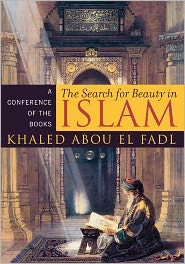Jed Purdy, Duke Law School, has a
thoughtful post on Occupy Wall Street. He ends with the idea that
The Occupiers are experimenting with the thought that inequality and opacity are optional, or, at least, that there can be ways of living together that are much more equally free, and much more intelligible, than those we have accepted. Their contribution, for now, is to invite others to pursue the same thought. It is really no more, or less, than the thought behind the Declaration of Independence: that societies are erected by naturally free and equal people, who are entitled to change the rules when they believe a different arrangement would serve their freedom better. History shows that this principle is dangerous, but also that we cannot do without it.
His rumination is eloquent from beginning to end. But I was struck especially with his opening:
As an approach to library science, anarchism is at its strongest and its weakest. The volunteers at the Occupy Wall Street library in Zuccotti Park “shelve” no book into the waterproof bins that serve as open-air shelves without first cataloguing it online and branding it with a Sharpie. This procedures creates a complete catalog of the books that sympathizers have donated, thanks to a small knot of natty book-lovers, some of whom unroll their camping gear at night amid the stacks of political theory, alternative economics, polemics on the financial crisis, bodice-rippers, and spiritual charlatanism of every kind. Once catalogued, the books go into an anarchist lending system, which is no system at all: take it if you want it, return it if you will, keep it if you need it. The catalog says nothing about the library’s present holdings except what has been there. It is an instantly obsolete memorial produced by tirelessly fastidious people who refuse to turn their fastidiousness into a rule for anyone else. It sits at the meeting-place of the database, the civic institution, and public art.
There is only one other meditation on libraries and the nature of politics that I know of, and I encountered it a decade ago in the incomparable work of
Khaled Abou el Fadl, UCLA Law School.
A Conference of the Books: The Search for Beauty in Islam opens with this passage:

In a small town outside Princeton, New Jersey, in a small crowded apartment, blessed by its immeasurable powers and burdened by its keeper, you will find the Islamic Civilization. The glories, the infamies, the victories, the ecstasies, the soft supplications, the tearful entreats, the dreams, the endless lessons of human follies and the exacting record of the divine covenant are all here, present every night. The impregnable resilient volumes stand side-by-side in a solemn procession testifying to our deeds. Hasn't the Lord commanded us to recite and to bear witness? Here, in this small crowded space, is the endless recitation and the eternal murmurings of the Conference of Books. Who was ever foolish enough to believe that there is a past and present? There is only the read and unread, otherwise all times are ever present in this library. If you listen carefully enough, in the dead of night you will hear the whispers, the arguments, the debates. You will hear the constant search for the divine and the aching sublimation. When was this conference first held? "At first, God created the intellect," the Prophet said. With creation, the library was born and with the library, the numerous books testifying to the glory of the divine. Has any civilization honored the book more than we have? And, has any civilization betrayed the book more than we have? In the beginning we memorized from our Prophet, "An hour's reflection is better than a year's worship." Puzzled we asked "even better than reading the Quran?" And he, may he be blessed, said, "And, can the Quran be useful without knowledge?" Ali, his student and companion, then declared "God did not distribute to His servants anything more to be esteemed than intelligence..."

